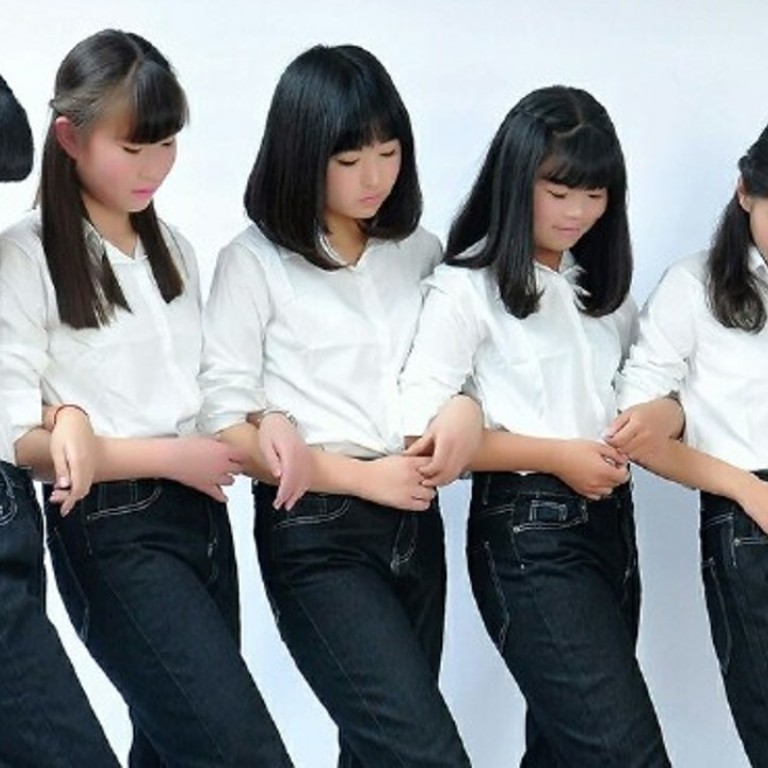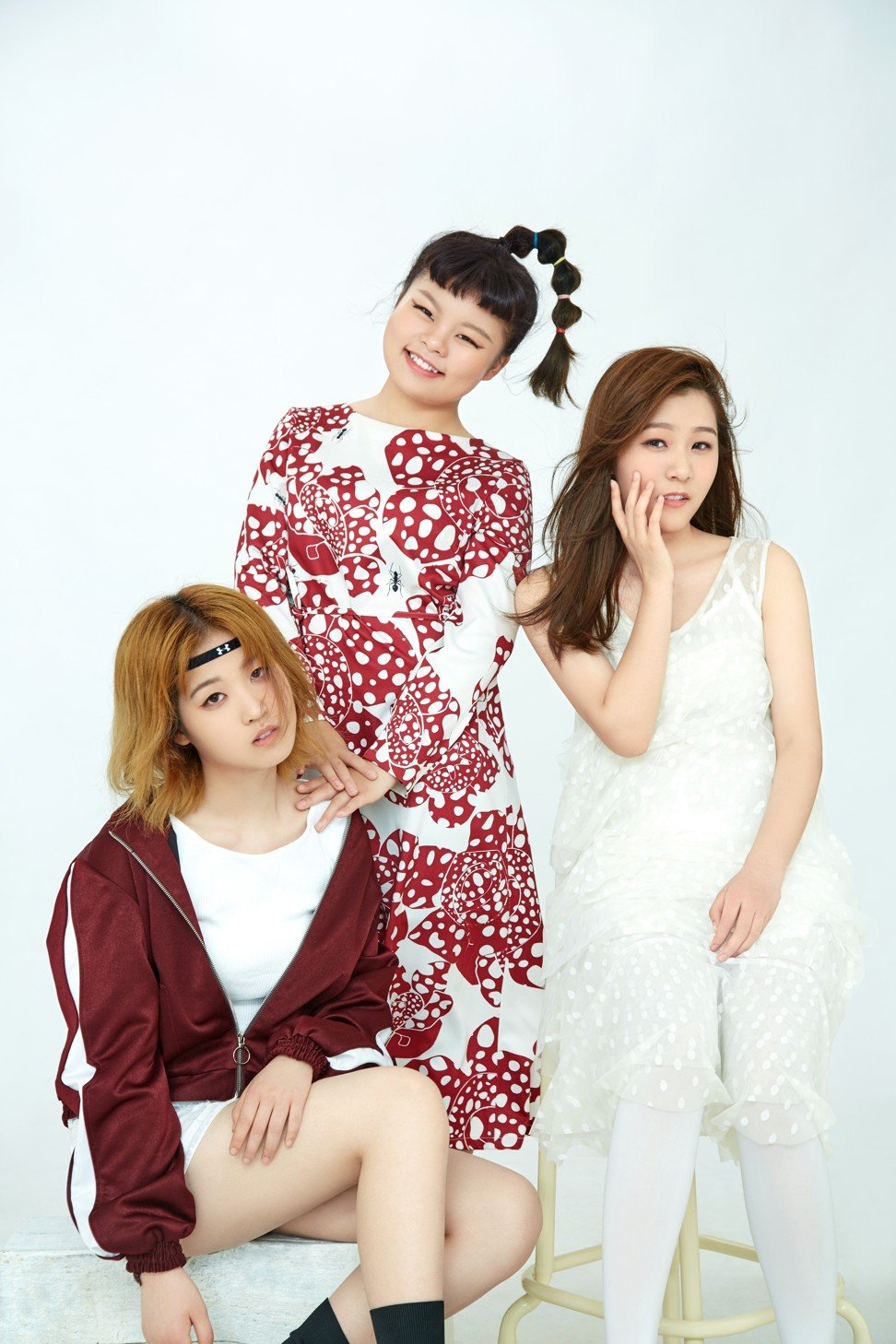
How China’s ‘ugliest’ girl group reclaimed a taunt that brought them fame
Five teens who went viral by accident took an online jeer and made it their own brand
They don’t look anything like your typical celebrities and aren’t particularly talented performers, but five teenage girls have made a name for themselves in China for precisely these reasons.
The 17-year-old high schoolers, known collectively as Sunshine, have been dubbed China’s “ugliest” girl group.
But the unflattering label doesn’t faze them. Rather, the girls – Abby, Cheryl, Cindy, Dora and Nancy – have quickly taken what started as cruel taunts by internet users and reclaimed the disparaging term, adopting it as their defining feature and empowering themselves in the process.
“From the very beginning, we raised eyebrows because of our ugly features,” Abby told the South China Morning Post as she recounted how the five schoolmates rose to fame. The girls have not released their Chinese names to protect their families from the media glare.
The teenagers, who used to sit together in class in Bozhou, in eastern China’s Anhui province, had agreed to enter a singing competition in late 2015, attracted by the mobile phones being offered as prizes.
They made a recording of themselves singing and posted it on Weibo, China’s version of Twitter, alongside photos of themselves. But they never got around to applying for the contest and soon forgot about it.
During the Lunar New Year last year, their post suddenly went viral. Almost overnight, their song and photos were shared millions of times across Chinese social media. An entertainment industry insider with millions of followers and using the alias of Yubapo had promoted the group on her Weibo account, Chinese media reports said.
With the exposure, internet users’ comments poured in – but they were largely negative.
“Were their pictures taken at a rural photo studio? Just looking at their clothes and gestures, I would have thought they’re pupils from 20 years ago,” one comment read.
Another said: “[Comparing myself with their looks], I think I myself should go into the entertainment industry and become a star as well.”
Yet another wrote: “I feel so disgusted from hearing their song that I can’t even muster the energy to criticise them.”
The keyboard warriors didn’t stop at ridiculing the girls’ appearance and lack of singing talent. Some went as far as to doctor their photos using face-beautifying apps.
“People abused us on the internet, saying how terribly ugly we are,” Abby said. “At first I felt angry. We did nothing wrong.”
The online buzz brought the media to the girls’ hometown, and suddenly, everyone seemed to be falling over themselves to catch a glimpse of them. Schoolmates gathered outside their classroom to gawk and those from other schools congregated at their school gate to wait for them, Cheryl said.
“Even when we went to the toilet, people would follow us,” she said.
At a Beijing filming event to which they were invited a fortnight later, the group was swarmed by domestic media outlets and hundreds of people who had come to watch them. They were flooded by interview requests and event management firms approached them with invitations.
That was when the realisation that they had become China’s latest internet celebrities truly sank in, Abby said.
The girls pounced on the opportunity. By the end of February last year – just weeks after the group went viral – they had joined Shenzhen-based label company Xin Nian Music.
“I signed the girls as I saw in them the potential to become a top inspirational group,” said Jie Bin, a representative from the firm. “The story of how they rose to success from the grass roots can inspire others.”
Working with the music company, the group reappropriated the unflattering labels that internet users had foisted on them, turning criticism of their “ugliness” and “unimpressive vocals” into their selling point.
Their popularity grew rapidly. At one point, one of their live-streamed videos drew 700,000 real-time viewers and fetched five million likes – putting them on a par with top Chinese film stars, according to QQ.com, where the clip was aired.
Yet, almost as quickly as the group was formed, they split. In November, barely a year after their rise to fame, Abby, Cindy and Dora terminated their contracts to start a separate group, called 3unshine, with Beijing-based Real Show Cultural Development.
The trio quit school, leaving Bozhou for Beijing to receive full-time music and performance training. The remaining pair, Cheryl and Nancy, now attend intensive classes to prepare for their college entrance examinations next year, though they still take part in promotional activities occasionally.
The original group of five saw a meteoric rise but people’s interest in them waned, according to Wang Bei, a senior supervisor at entertainment industry consultancy Beijing iMiner Data Technology.
This was partly because they were regarded as a “curious phenomenon” rather than artists, she said.
“Selling ‘ugliness’ can bring you fame for a little while, but not for long.”
Even so, the teenagers, riding their wave of popularity, have gained skills that will likely stick with them for life.
“I’ve undergone big changes over the past year,” Cheryl said. “I used to be really nervous under the spotlight but now I’m very comfortable being interviewed. I now know how to chat with reporters and am more mature.”
And despite being apart, the girls continue to share a quiet confidence in themselves.
“Actually I don’t think I’m ugly,” Abby said from her home in Beijing. “If you think we’re too ugly, don’t look at us.”
Miles away from Abby, back in Bozhou, Cheryl echoed her former classmate’s sentiments: “What makes us stand out from other girl groups is that we’re young and pure. We didn’t undergo any plastic surgery [to make us beautiful]. This is the authentic look of a high-school pupil in China.”



